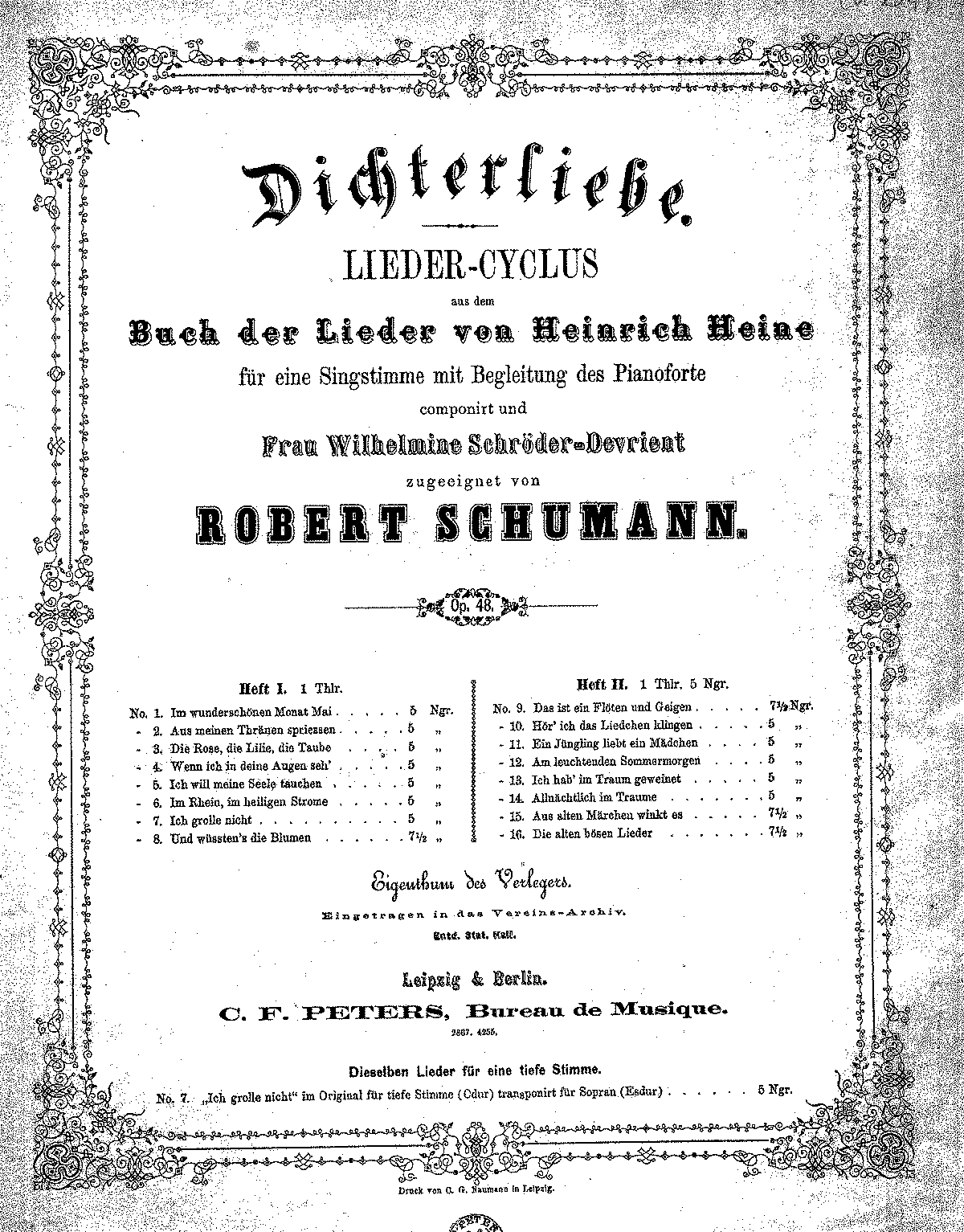
Lied
In Western classical music tradition, Lied (/liːd, liːt/, plural Lieder /ˈliːdər/;[1][2][3] German pronunciation: [liːt], plural [ˈliːdɐ], lit. 'song') is a term for setting poetry to classical music to create a piece of polyphonic music.[4] The term is used for any kind of song in contemporary German and Dutch, but among English and French speakers, lied is often used interchangeably with "art song" to encompass works that the tradition has inspired in other languages as well. The poems that have been made into lieder often center on pastoral themes or themes of romantic love.[5]
"Lieder" redirects here. For the name, see Lieder (surname). For other uses, see Lied (disambiguation).The earliest Lieder date from the late fourteenth or early fifteenth centuries, and can even refer to Minnesang from as early as the 12th and 13th centuries.[6] It later came especially to refer to settings of Romantic poetry during the late eighteenth and nineteenth centuries, and into the early twentieth century. Examples include settings by Joseph Haydn, Wolfgang Amadeus Mozart, Ludwig van Beethoven, Franz Schubert, Robert Schumann, Johannes Brahms, Hugo Wolf, Gustav Mahler or Richard Strauss.
Examples[edit]
Typically, Lieder are arranged for a single singer and piano, Lieder with orchestral accompaniment being a later development. Some of the most famous examples of Lieder are Schubert's Erlkönig, Der Tod und das Mädchen ("Death and the Maiden"), Gretchen am Spinnrade, and Der Doppelgänger. Sometimes, lieder are composed in a song cycle (German Liederzyklus or Liederkreis), a series of songs (generally three or more) tied by a single narrative or theme, such as Schubert's Die schöne Müllerin and Winterreise, or Robert Schumann's Frauen-Liebe und Leben and Dichterliebe. Schubert and Schumann are most closely associated with this genre, mainly developed in the Romantic era.[11][12]
Other national traditions[edit]
The Lied tradition is closely linked with the German language, but there are parallels elsewhere, notably in France, with the mélodies of such composers as Berlioz, Fauré, Debussy, and Poulenc, and in Russia, with the songs of Mussorgsky and Rachmaninoff in particular. England too had a flowering of song, more closely associated, however, with folk songs than with art songs, as represented by Ralph Vaughan Williams, Benjamin Britten, Ivor Gurney, and Gerald Finzi.